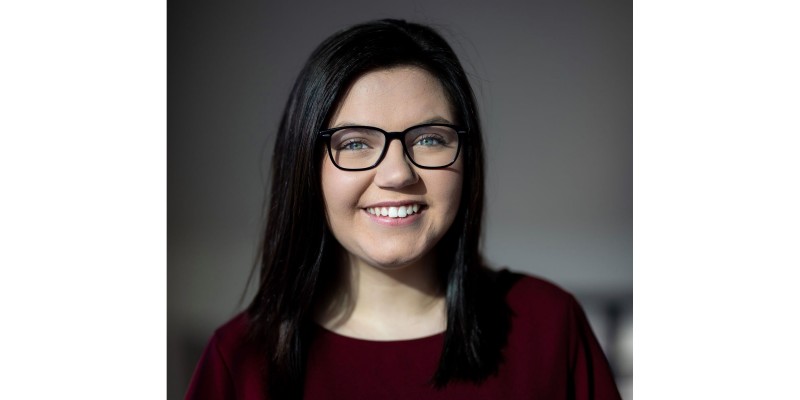Emily Laite is a Mi’Kmaq youth from Gander who stays connected to her culture by attending band meetings and taking part in cultural days and activities. “There is still so much I don’t know about my culture,” said Emily. “I want to be able to learn about my culture and be able to pass it along to other members of the community for years to come.
For Emily being a Mi’kmaw youth means being a part of a greater community. She said, “I am proud to live as a Mi’kmaw person and to be able to learn about my heritage and my culture from other members of my community.”
Emily has always taken part in meetings and cultural events over the years but plans to become more involved in her hometown of Gander now that she has finished her post-secondary education and is living home again.
Among her long list of accomplishments Emily is currently on the Board of Directors for the Atlantic Summer Institute, “that takes place in Prince Edward Island in which we do a lot of work with Indigenous people and their mental health,” she explained.
She is also on the Premier’s Youth Council where she has the opportunity to meet with the Premier and several ministers to discuss various topics, “I strive to not only represent youth in this role but also indigenous peoples; therefore, I advocate for different ways of thinking about topics such as mental health, education, and healthcare practices.”
When discussing Qalipu’s Comprehensive Community Plan, Emily said that a part of her vision for the future of Qalipu is that there will be more cultural activities held in Central Newfoundland, “to allow Band members to learn more about our culture and to become more involved,” she said. Right now, Emily said there are not many events held in her area that allow indigenous youth, such as herself, to learn and engage with Mi’kmaq culture.
Emily’s vision for the future of Qalipu also includes seeing initiatives put in place to teach Indigenous education island-wide, “this could involve children having access to resources to help them learn how to speak Mi’Kmaq and also to learn about their ancestors and cultural practices,” said Emily.

